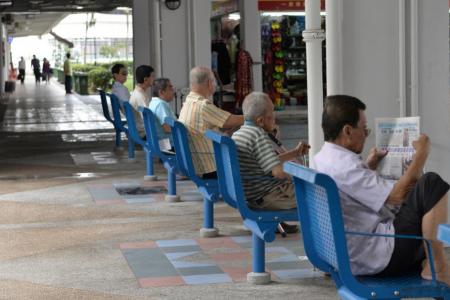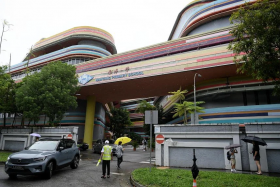Course for GPs improved to match greying society
CFPS and MOH working to enhance graduate diploma in family medicine to meet growing need for primary-care doctors
Singapore's main training programme for general practitioners (GPs) to get certified in family medicine will, for the first time, undergo an "intensive upgrade".
The revamp of the two-year graduate diploma in family medicine is driven by a growing need for primary-care doctors who can deal with the myriad of health issues brought about by a greying society.
The new curriculum, which will feature new aspects including transitional care and extra training specific to facilities such as nursing homes, is to take effect next year, the College of Family Physicians Singapore (CFPS) told The Straits Times.
CFPS oversees the development of family medicine here.
The Ministry of Health (MOH) said it is working with the college to "review and enhance" the programme in "key areas of national priority".
They include chronic disease management, geriatric care, mental health and community hospital practice, said an MOH spokesman.
This comes as a record 169 doctors enrolled in the course last year, up from the 114 sign-ups in 2014 and 98 in 2011.
While the course, which started in 2000, is regularly updated, the latest review will be far more extensive.
Associate Professor Lee Kheng Hock, president of CFPS, said: "This time, we are carrying out a major upgrade, where we will make the course more relevant in view of the changing needs of our community and the enhanced role of family doctors in the healthcare system."
This time, we are carrying out a major upgrade, where we will make the course more relevant in view of the changing needs of our community...CFPS president Lee Kheng Hock
A committee comprising 17 senior family physicians across the public and private sectors is carrying out the review, which will be completed in about three months.
Prof Lee said the new curriculum will be implemented in the next academic year in 2018.
Today, about 2,600 doctors provide primary care in Singapore. As of the end of last year, 1,750 family physicians count among them.
Based on preliminary projections, Singapore will need 3,500 family physicians by 2030, said the MOH spokesman.
Family physicians provide comprehensive care for a person in the context of his family and the community he lives in.
TRAINED
They are trained to manage both acute and chronic ailments - a dislocated shoulder and diabetes, for instance - and prevent them from spiralling into complications.
To be accredited as one, a doctor may obtain the graduate diploma. It is a part-time course that includes workshops and case discussions.
The other path is a three-year residency offered by public healthcare groups. Started in 2011, the full-time programme involves clinical rotations in hospitals and polyclinics.
Some overseas certifications are also recognised.
Prof Lee said the revamped curriculum will feature new areas of focus, such as integrated care and transitional care, where a person moves from one healthcare facility to another or back home.
"There will also be additional training to boost the competency of family doctors in certain settings, such as nursing homes, community hospitals and home care," said Prof Lee.
More emphasis will be placed on caring for older people and managing patients recently discharged from hospitals, he added.
FOR MORE, READ THE STRAITS TIMES TODAY
Get The New Paper on your phone with the free TNP app. Download from the Apple App Store or Google Play Store now



